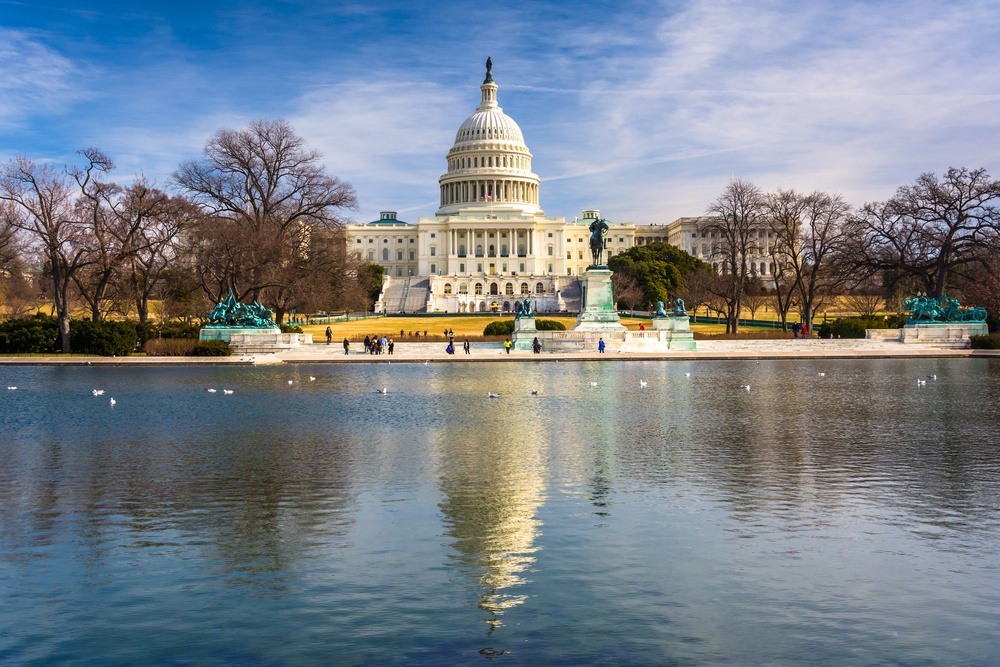Many folks faced the new year with a fresh-start mindset, new goals, and a handful of resolutions. For some, 2017 is still at the top-of-mind with credit card balance carry-overs and a loan or two. For others, the new year brings ideas of travel, home renovations, or major purchases.
Regardless of the intent, oftentimes folks think they can simply borrow or withdraw from their 401(k) to pay for these things when their bank account is not liquid. After all, the money is theirs and just “sitting” untouched. So why not tap into the account – life is short, right?
But, It’s My Money! What you need to know before withdrawing funds from your 401k
Zinner & Co. Tax Team Retirement Planning & IRAs , IRSScam Alert: Fraudsters Posing as Taxpayer Advocacy Panel
Zinner & Co. Tax Department Brett W. Neate , Taxes - Corporate & Business , Taxes - Planning, Rules and Returns , Business - Management, Issues & Concerns , Taxes - Individual , tax , cybersecurity , IRSSome taxpayers receive emails that appear to be from the Taxpayer Advocacy Panel (TAP) about a tax refund. These emails are a phishing scam, trying to trick victims into providing personal and financial information.
Do not respond or click any link. If you receive this scam, forward it to phishing@irs.gov and note that it seems to be a scam phishing for your information.
TAP is a volunteer board that advises the IRS on systemic issues affecting taxpayers. It never requests, and does not have access to, any taxpayer’s personal and financial information.
The Rules Have Changed for Attending the Game (and Other Entertainment Events)
Zinner & Co. Tax Department Taxes - Corporate & Business , deductionsThe recent enactment of the Tax Cuts and Jobs Act (TCJA) brought many changes to how individuals and businesses are affected by our tax system.
Among the deductions affected was the deduction for meals and entertainment incurred in the course of operating a business. Prior to the enactment of the TCJA, which took effect for many provisions on January 1, the allowable deduction for meals and entertainment expenses was capped at 50% of the allowable amount of such costs that were incurred. Under the old law, no deduction was allowable unless the cost was either directly related to or associated with the conduct of business.
Working in the Gig Economy: What you need to know about potential tax consequences
Zinner & Co. Tax Department electronic filing , Brett W. Neate , Taxes - Corporate & Business , Taxes - Planning, Rules and Returns , Taxes - IndividualIf you use one of the many online platforms available to rent a spare bedroom, provide car rides, or to connect and provide a number of other goods or services, you’re involved in what is sometimes called the sharing or gig economy.
An emerging area of activity in the past few years, the sharing economy has changed how people commute, travel, rent vacation accommodations and perform many other activities.
Also referred to as the on-demand, gig or access economy, the sharing economy allows individuals and groups to utilize technology advancements to arrange transactions to generate revenue from assets they possess - (such as cars and homes) - or services they provide - (such as household chores or technology services).
Updated 2018 Withholding Tables Now Available; Taxpayers Could See Paycheck Changes by February
Zinner & Co. Tax Department tax services , Brett W. Neate , Taxes - Corporate & Business , Taxes - Planning, Rules and Returns , Taxes - IndividualWASHINGTON — The Internal Revenue Service released Notice 1036, which updates the income-tax withholding tables for 2018 reflecting changes made by the tax reform legislation enacted last month. This is the first in a series of steps that IRS will take to help improve the accuracy of withholding following major changes made by the new tax law.
"As advertised, most taxpayers will see a reduction of their federal withholding as a result of the recently-passed Tax Cuts and Jobs Act (TCJA). Keep in mind, though, that the full effect of the TCJA on individuals’ tax and financial situations will only begin to be known a year from now, when taxpayers begin to file their 2018 income tax returns," said Zinner Tax Partner Howard Kass, CPA, CGMA, AEP.
Zinner & Co. Quickbooks Support Policy: What you need to know
Zinner & Co. quickbooks , Ohio business owners , Business - Management, Issues & Concerns , Zinner NewsEffective June 1st 2018 Zinner & Co. will officially adopt Intuit’s Quickbooks Discontinuation policy. If you are using Quickbooks version 2015 or older, you will need to upgrade to maintain compliance. This policy will maintain support for the three most recent versions of Intuit Quickbooks. The annual drop date for the oldest product version is May 31st. Intuit’s current “Disco” policy states:
Tax Cuts and Jobs Act of 2017: What it means to you and your business
Zinner & Co. Tax Department tax services , Brett W. Neate , Taxes - Corporate & Business , Taxes - Planning, Rules and Returns , Taxes - IndividualCongress is enacting the most sweeping tax legislation in thirty years, one that will make fundamental changes in the way you, your family and your business calculate your federal income tax bill, and the amount of federal tax you will pay. Since most of the changes will go into effect next year, there is still a narrow window of time before year-end to soften or avoid the impact of crackdowns and to best position yourself for the tax breaks that may be heading your way.
Here is a quick rundown of last-minute moves you should think about making.
“Data breach can’t happen in our company, we are not big enough to be a target.”
All in (or out of) the Family: Who will inherit the family business?
DeAnna Alger, CPA business succession , DeAnna AlgerAs a business owner, one often invests much time and energy into the day-to-day operations. As a result, many owners are likely to sidestep or forget to take the time to establish a long-term plan for the business and simply presume their child will hold the same passion for the business and knowledge in the industry as they have. But, what happens if the child or children have no desire to inherit the business?
First, having a succession plan in place for the business is just as important as having a will for ones personal assets. Without a succession plan, the company’s future, assets, and legacy are potentially at risk, regardless of who handles the business when an owner retires.
Take This Job and … Retire? 5 things you must consider before clocking out
Zinner & Co. Taxes - Individual , Retirement Planning & IRAsWhile many entrepreneurs find satisfaction in owning their business and others simply love their jobs, most do not necessarily want to work for the rest of their lives.
If you are such an entrepreneur, you are not alone. Many look forward to the idea of never having to work again, yet, the concern about whether there will be enough income to survive can’t be overlooked. This leads to the all-important question: How much does one need to save for retirement?
About Us

Since 1938, Zinner has counseled individuals and businesses from start-up to succession. At Zinner, we strive to ensure we understand your business and recognize threats that could impact your financial situation.
Recent Blog Posts
Categories
- 1031 Exchange (2)
- 401k (2)
- 529 plan (4)
- ABLE Act (1)
- account systems (3)
- accounting (8)
- Affordable Care Act (8)
- alimony (2)
- American Rescue Plan Act (1)
- Ask the Expert (5)
- Audit and Assurance Department (13)
- audits (8)
- Bank Secrecy Act (1)
- banks (1)
- Barbara Theofilos (6)
- Beneficial Ownership Information (1)
- Bitcoin (1)
- block chain (2)
- BOI (3)
- Bookkeeping (1)
- Brett W. Neate (28)
- budgets (1)
- Bureau of Worker's Compensation (12)
- Business - Management, Issues & Concerns (50)
- business income deduction (3)
- business succession (7)
- business travel expense (3)
- business valuation (5)
- capital gains (2)
- careers (7)
- cash flow (2)
- Child Tax Credit (2)
- Chris Valponi (8)
- City of Cleveland (1)
- Cleveland COVID-19 Rapid Response Fund (1)
- Cleveland Rape Crisis Center (2)
- college (3)
- Community (24)
- Compliance (1)
- Coronavirus (24)
- Corporate Transparency Act (1)
- COVID-19 (30)
- Credit card fraud (5)
- credit reporting (2)
- cryptocurrency (2)
- CTA (2)
- cybersecurity (16)
- dead (1)
- DeAnna Alger (6)
- death (2)
- debt (4)
- deductions (14)
- Deferring Tax Payments (4)
- Department of Job and Family Services (2)
- depreciation (1)
- Digital Tax Payment (1)
- divorce (4)
- DOMA (3)
- Economic Impact Payments (2)
- Economic Injury Disaster Loan (4)
- education (8)
- EIDL (1)
- electronic filing (4)
- Electronic Tax Payments (2)
- Emergency Working Capital Program (1)
- employee benefit plan auditor (1)
- Employee Leave (2)
- Employee or Independent Contractor (6)
- Employee Retention Credit (3)
- employment (2)
- ERC (3)
- Eric James (8)
- Estates, Gifts & Trusts (48)
- expenses (5)
- Families First Coronavirus Response Act (2)
- FASB (1)
- FBAR (1)
- FDIC coverage (1)
- Federal Assistance (4)
- filing (3)
- financial planning (8)
- Financial Planning - College (9)
- financing (3)
- Firm news (119)
- first responders (1)
- FMLA (1)
- foreign assets (3)
- fraud (38)
- FSA (1)
- fundraising (9)
- Gabe Adler (1)
- gift tax (5)
- HDHP (2)
- health care (3)
- home (2)
- home office (1)
- Howard Kass (2)
- HRA (1)
- HSA (5)
- identity theft (32)
- income (1)
- income tax (57)
- independent contractor (1)
- Inflation (1)
- Insurance (7)
- internal control (4)
- international (2)
- Intuit (1)
- investments (4)
- IRS (88)
- jobs (5)
- John Husted (1)
- K-1 (1)
- Laura Haines (3)
- Layoff (2)
- Layoffs (1)
- leadership (3)
- lease accounting standards (1)
- life insurance (1)
- LLC (3)
- Loans (2)
- longevity income annuities (1)
- Lorenzo's Dog Training (1)
- Magic of Lights (1)
- management advisory (3)
- manufacturing (2)
- Matt Szydlowski (3)
- medical (7)
- Medicare (2)
- mergers and acquisitions (1)
- Mike DeWine (2)
- Millennial Concepts (2)
- minimum wage (1)
- NAIOP (1)
- National Defense Act (1)
- non-profit reporting (10)
- non-profits (38)
- not-for-profit (26)
- ODJFS (1)
- office (1)
- ohio (13)
- Ohio business owners (18)
- Ohio Department of Jobs and Family Services (3)
- Ohio Department of Taxation (3)
- Ohio Incumbent Workforce Training Voucher Program (1)
- Online Tax Payment (3)
- Operations (2)
- OPERS (1)
- owners of foreign entities (1)
- partnerships (5)
- passwords (1)
- Paycheck Protection Program (9)
- payroll (8)
- penalties (3)
- pension (2)
- personal finance (2)
- planning (4)
- ppp (7)
- Productivity (5)
- Qualified Business Income (1)
- quickbooks (10)
- real estate (14)
- record retention (2)
- records (2)
- Reporting (1)
- Republican National Convention (1)
- Retirement Planning & IRAs (53)
- Richard Huszai, CPA (5)
- RITA (1)
- Robin Baum (6)
- RRF (1)
- S Corporation (1)
- SALT (8)
- SBA (8)
- scams (12)
- SECURE 2.0 Act (1)
- security (6)
- SharedWorks (1)
- Shutdown (3)
- Silver Linings (9)
- simplified employee pension (1)
- Small Business (5)
- SMB (12)
- Social Media (1)
- social security (4)
- Speaker Series (2)
- spouse (1)
- start ups (8)
- Stay at Home Order (3)
- Steven Mnuchin (1)
- Sue Krantz (6)
- SVOG (1)
- tangible property (1)
- tax (27)
- tax avoidance (12)
- Tax Credit (7)
- Tax Cuts and Jobs Act of 2017 (31)
- Tax Exempt (1)
- Tax Holiday (1)
- Tax Interns (2)
- tax services (28)
- taxes (45)
- Taxes - Corporate & Business (104)
- Taxes - Individual (117)
- Taxes - Planning, Rules and Returns (188)
- TechCred (1)
- technology (7)
- The CARES Act (6)
- The SOURCE (1)
- tiag (3)
- transaction advisory (2)
- Treasury Department (5)
- tuition (3)
- U.S. Department of the Treasury (1)
- U.S. Small Business Administration (6)
- Unclaimed Funds (1)
- Unemployment Benefits (4)
- withdrawls (2)
- withholding (6)
- Workers Comp Billing Changes (1)
- Zinner & Co. (32)
- Zinner News (30)












